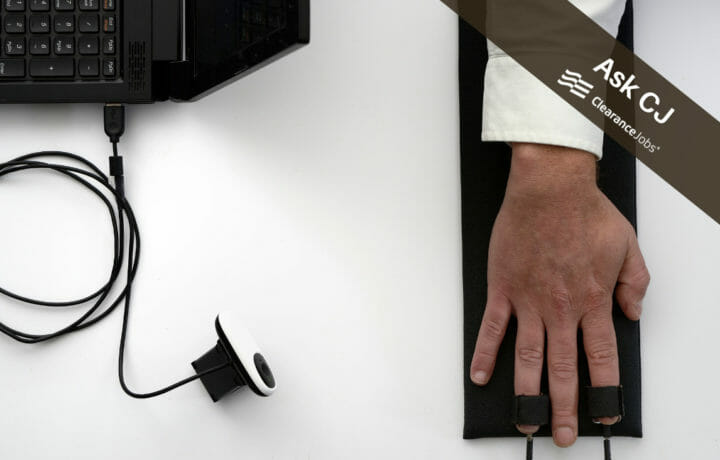Mental health has long been a hot topic in the security clearance process, with a greater push in recent years by federal agencies encouraging applicants to continue seeking proactive mental health treatment. The SF-86 has made positive steps in clarifying how mental health questions are asked, but some applicants are still surprised when a mental health screening becomes a part of their security clearance investigation.
One background investigator on the ClearanceJobsBlog says, “I know a guy who had to go for a psych eval after being cleared for many years… they told him that part of it was trying to identify disgruntled employees ahead of time to avoid the next <insert name of leaker/whistleblower/bonehead here> incident.”
This week’s Ask CJ relates to a screening that was prompted after a successful Full Scope Polygraph examination:
I have held a Full Scope clearance in the past as a contractor and I left the clearance world for a few years, but I decided to go back to the cleared world. I am in processing for another Full Scope as a contractor. I have already had the BI and I passed the poly on my first try but now they are wanting me to do a medical/mental health screening. I did not have to do that the first time I got the clearance. Is this something new for a contractor? If not does anyone know why I would have to go through it. I have no issues with it, so I am not worried. I am just curious why since I did not have to do it the first time.
APPLYING TO THREE LETTER AGENCIES
The Intelligence Community (IC) conducts their own security clearance background investigations and has their own suitability requirements. The original poster could have applied to one of what we’d traditionally consider a “three letter” agency (CIA, NSA, etc.). Sean Bigley, former security clearance attorney notes, “At those agencies, employees and contractors alike are generally subject to the same vetting procedures, which include a medical/mental health screening for all positions. It isn’t clear to me why she wouldn’t have been subjected to that last time, but I’m guessing it was because the previous time a different agency held her clearance.”
DISCLOSING SUSPICIOUS INFORMATION DURING THE BACKGROUND INVESTIGATION
Even though the original poster isn’t worried per se, something may have popped up that motivated the agency to dive a bit further and triggered psychological evaluation. Maybe this person applied somewhere else but disclosed information during the background screening process that raised concerns about their mental health or substance abuse history. Or maybe there was no specific instance at all and it’s a standard part of the polygraph background investigation process with that agency.
LAW ENFORCEMENT POSITIONS
Sean Bigley notes that there is a potential other possibility for prompting a medical /mental health screening but may not be applicable to this Ask CJ. “That is that an individual could apply to a federal law enforcement position that requires a psychological and medical evaluation, even though other applicants for non-law enforcement positions at the same agency would not.”
Mental health screenings shouldn’t be a scary thought or cause anxiety that your clearance is automatically going to be denied. Being proactive in your mental health is the best thing you can do for your clearance eligibility. If you mee the physical requirements of the position (if there are any) and you haven’t hidden mental health issues, just consider the evaluation a standard part of the process and know that particularly within the IC, it’s not necessarily unusual.




